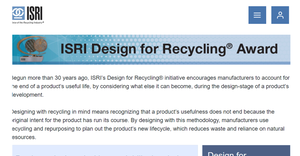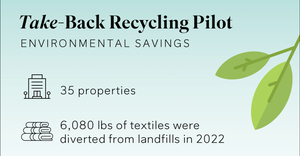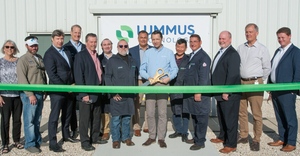March 1, 2000
Madeline Johnson and Charles R. Strain Jr.
Along with municipalities, retailers that serve as recycling collection points are on the front lines of recycling efforts. So, why do retailers become involved in recycling? Some participate voluntarily while others are required by federal, state or local laws to accept certain materials.
However, there are other reasons as well.
For example, customers' perception of a retailer's recycling commitment may motivate retailers to recycle, as opposed to economic or social issues, according to the 1997 report, "Retailers Perceptions of Their Recycling Programs," produced by an advanced marketing class at the University of Houston-Downtown.
The report is based on the opinions of 196 Houston area grocery and automotive store managers about their recycling programs. Retailers were unable to provide their recycling programs' costs or the quantity of recyclables collected.
However, the study showed that 65 percent of the automotive store managers and 70 percent of the grocers thought their recycling programs costs them money. Although only the auto-related retailers perceive an economic benefit from their recycling programs, both groups feel the major return comes from maintaining good customer relations.
Interestingly, several retailers said they received negative feedback when they stopped offering dropoff areas, despite their perception of low customer participation. Thus, many customers may need to see their retailers participating in recycling even if they do not bring recyclables to the store.
Generally the study's participants felt that there are advantages to these programs without any significant disadvantages or costs.
For example:
* Sixty-three percent of automotive businesses and grocers perceived that over time, the amount of recyclables collected increased.
* Both groups reported collecting a "significant" amount of recyclables - 38 percent automotive businesses and 28 percent grocers.
* Between 70 percent and 73 percent viewed the recycling programs as positive.
* Nineteen percent of the automotive businesses noted an increase in customer traffic since beginning a recycling program. However, the number was lower for grocers.
* About one quarter of the grocers said that an advantage of the program is goodwill while 21 percent noted customer satisfaction.
The study noted a few disadvantages:
* Fifty-seven percent of automotive retailers and 62 percent of grocers stated that there was little revenue generated from the recycling programs.
* The resistance to recycling was related to employee time spent cleaning and preparing the recyclables for pick-up.
* Both grocers and automotive businesses tended to cite storage and messiness of the material to be the greatest disadvantage.
You May Also Like


